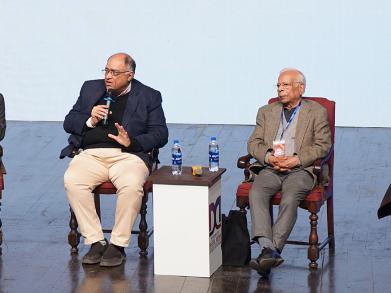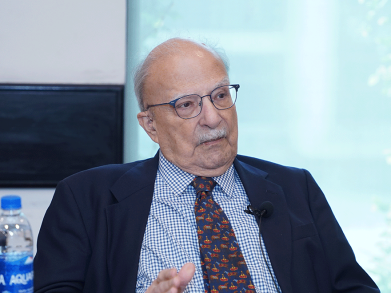Countries across the world are increasingly using data - which is at the heart of evidence-based policymaking - to design policies. There is now increased focus on extracting real-time data from various sources that include geo-spatial data and night lights data via satellite technologies, google analytics and other big data sources such as call detail records (CDR) to estimate economic indicators and outcomes such as GDP and poverty.
New and innovative ways of extracting and using data, such as predictive modelling, artificial intelligence and machine learning algorithms, have further broadened the horizons for measuring economic activity. This distinguished panel shed light on a number of recent studies and reports and the utilization of these novel methods of data collection that can help bring in efficient and targeted interventions along with public investments that support growth, bridge regional disparities and improve urban planning.
Hosted in collaboration with the Mahbub ul Haq Research Centre (MHRC) and the Sustainable Energy & Economic Development (SEED) Programme, the session was moderated by Ms. Nazish Afraz.























